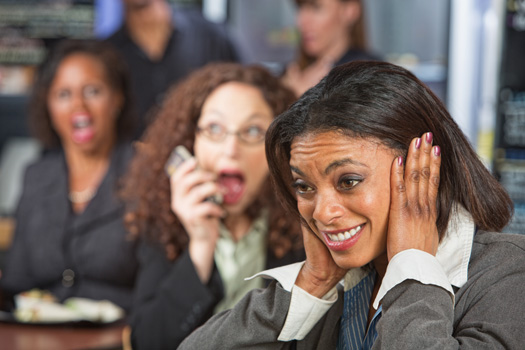Surprising Things That Can Damage Our Hearing

May is Better Speech and Hearing Month—a great time to raise awareness of the importance of protecting our ears. Recent studies confirm that hearing loss can lead to:
- Social isolation
- Depression
- Falls and other injuries
- Increased risk of Alzheimer’s disease
- Economic instability
Hearing loss is often due to changes in our ears as we grow older. We can’t do much about these age-related changes, but we can protect our ears from loud noises that damage the structures of the inner ear. A single very loud noise can cause permanent damage, and damage can build up over time.
The Centers for Disease Control and Prevention (CDC) recently released a list of noise exposures that may be loud enough to cause hearing damage. Some of these 15 noisy situations are no doubt familiar, while others might surprise you.
- Using power tools
- Fireworks
- Loud concerts
- Noisy sports events
- Motorized sporting events such as car races
- Mowing the lawn
- Loud music at restaurants and bars
- Listening to loud music on headphones
- Watching TV with the volume cranked up
- Construction sites
- A dog barking near your ear
- Loud music at a fitness class
- Discharging firearms
- Movie theaters
- Noisy children’s toys
Even if a person is already living with some hearing loss, avoiding exposure to these types of loud noises can prevent further damage. Protect your hearing by:
- avoiding loud noise if possible
- minimizing the time you’re exposed to loud noises
- taking periodic breaks from the noise
- moving farther away from the source of noise
- wearing earplugs or hearing-protection earmuffs
- turning down the volume of personal listening devices
Seniors should be regularly screened for hearing loss. Our hearing can diminish so gradually that we might not notice we have a problem! If some hearing is already lost, hearing aids can help. The sooner a person with diminished hearing starts using hearing aids, the better. We hear not only with our ears, but with our brains. The longer we wait, the more our brains lose the ability to process and understand sounds.
Visit the CDC’s National Center for Environmental Health’s hearing loss website (https://www.cdc.gov/nceh/hearing_loss/default.html) to learn more about the types of noises that can cause damage.
Source: IlluminAge AgeWise with information from the Centers for Disease Control and Prevention (CDC)
![Health Concepts [logo]](https://healthconceptsltd.com/wp-content/themes/healthconcepts-corporate/images/logo.png)
